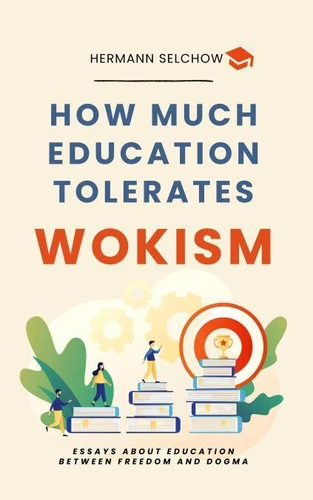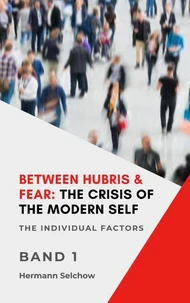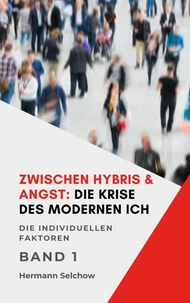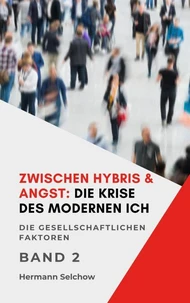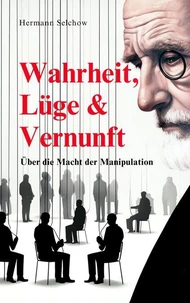Nouveauté
How much Education tolerates Wokism? - Essays
Par :Formats :
Disponible dans votre compte client Decitre ou Furet du Nord dès validation de votre commande. Le format ePub est :
- Compatible avec une lecture sur My Vivlio (smartphone, tablette, ordinateur)
- Compatible avec une lecture sur liseuses Vivlio
- Pour les liseuses autres que Vivlio, vous devez utiliser le logiciel Adobe Digital Edition. Non compatible avec la lecture sur les liseuses Kindle, Remarkable et Sony
 , qui est-ce ?
, qui est-ce ?Notre partenaire de plateforme de lecture numérique où vous retrouverez l'ensemble de vos ebooks gratuitement
Pour en savoir plus sur nos ebooks, consultez notre aide en ligne ici
- FormatePub
- ISBN8231399024
- EAN9798231399024
- Date de parution14/09/2025
- Protection num.pas de protection
- Infos supplémentairesepub
- ÉditeurWalzone Press
Résumé
The critical nonfiction book on the current university crisisA well-founded analysis of freedom of expression at German and American universitiesThe German and American higher education landscape is currently undergoing a period of profound change. While these developments are often framed under the banner of progress and social justice, closer examination also reveals problematic aspects that raise critical questions.
This book systematically examines how the increasing politicization of university life affects students who express dissenting opinions or pose critical questions. Using documented cases from Germany and the USA, it demonstrates the mechanisms at work when young people question the prevailing consensus. Who is this book relevant for?This book is aimed at anyone concerned about the future of academic freedom.
Parents will find important information here about the ideological currents their children can expect at university. Students gain insights into the complex social dynamics of campus life. Educational leaders and university faculty can use the developments presented as an opportunity to reflect on their own institutions. A necessary contribution to the educational debateThe developments documented here are not limited to individual universities or countries.
They reflect an international trend that affects the foundations of the Western educational tradition. The book is intended as a contribution to a long-overdue social discussion about the future of higher education. The presentation of the psychological and social mechanisms that lead to self-censorship and conformity is particularly valuable. Readers gain a deeper understanding of why many young people abandon their authentic beliefs and submit to a system that rewards conformity and punishes originality.
A balanced perspectiveThe book avoids one-sided blame and simple solutions. Instead, it acknowledges the complexity of the situation and demonstrates how various social forces have contributed to the developments described. This nuanced approach makes the work a valuable resource for anyone who seriously wants to engage with the challenges of today's educational landscape. The book is suitable for both professionals and interested laypeople.
The essayistic style makes complex connections accessible without sacrificing analytical depth. Anyone seeking to understand current debates about freedom of expression, diversity, and academic standards will find a well-founded and insightful analysis here. An important contribution to the diagnosis of our times, one that stimulates reflection and invites a nuanced discussion about the future of our educational institutions.
This book systematically examines how the increasing politicization of university life affects students who express dissenting opinions or pose critical questions. Using documented cases from Germany and the USA, it demonstrates the mechanisms at work when young people question the prevailing consensus. Who is this book relevant for?This book is aimed at anyone concerned about the future of academic freedom.
Parents will find important information here about the ideological currents their children can expect at university. Students gain insights into the complex social dynamics of campus life. Educational leaders and university faculty can use the developments presented as an opportunity to reflect on their own institutions. A necessary contribution to the educational debateThe developments documented here are not limited to individual universities or countries.
They reflect an international trend that affects the foundations of the Western educational tradition. The book is intended as a contribution to a long-overdue social discussion about the future of higher education. The presentation of the psychological and social mechanisms that lead to self-censorship and conformity is particularly valuable. Readers gain a deeper understanding of why many young people abandon their authentic beliefs and submit to a system that rewards conformity and punishes originality.
A balanced perspectiveThe book avoids one-sided blame and simple solutions. Instead, it acknowledges the complexity of the situation and demonstrates how various social forces have contributed to the developments described. This nuanced approach makes the work a valuable resource for anyone who seriously wants to engage with the challenges of today's educational landscape. The book is suitable for both professionals and interested laypeople.
The essayistic style makes complex connections accessible without sacrificing analytical depth. Anyone seeking to understand current debates about freedom of expression, diversity, and academic standards will find a well-founded and insightful analysis here. An important contribution to the diagnosis of our times, one that stimulates reflection and invites a nuanced discussion about the future of our educational institutions.
The critical nonfiction book on the current university crisisA well-founded analysis of freedom of expression at German and American universitiesThe German and American higher education landscape is currently undergoing a period of profound change. While these developments are often framed under the banner of progress and social justice, closer examination also reveals problematic aspects that raise critical questions.
This book systematically examines how the increasing politicization of university life affects students who express dissenting opinions or pose critical questions. Using documented cases from Germany and the USA, it demonstrates the mechanisms at work when young people question the prevailing consensus. Who is this book relevant for?This book is aimed at anyone concerned about the future of academic freedom.
Parents will find important information here about the ideological currents their children can expect at university. Students gain insights into the complex social dynamics of campus life. Educational leaders and university faculty can use the developments presented as an opportunity to reflect on their own institutions. A necessary contribution to the educational debateThe developments documented here are not limited to individual universities or countries.
They reflect an international trend that affects the foundations of the Western educational tradition. The book is intended as a contribution to a long-overdue social discussion about the future of higher education. The presentation of the psychological and social mechanisms that lead to self-censorship and conformity is particularly valuable. Readers gain a deeper understanding of why many young people abandon their authentic beliefs and submit to a system that rewards conformity and punishes originality.
A balanced perspectiveThe book avoids one-sided blame and simple solutions. Instead, it acknowledges the complexity of the situation and demonstrates how various social forces have contributed to the developments described. This nuanced approach makes the work a valuable resource for anyone who seriously wants to engage with the challenges of today's educational landscape. The book is suitable for both professionals and interested laypeople.
The essayistic style makes complex connections accessible without sacrificing analytical depth. Anyone seeking to understand current debates about freedom of expression, diversity, and academic standards will find a well-founded and insightful analysis here. An important contribution to the diagnosis of our times, one that stimulates reflection and invites a nuanced discussion about the future of our educational institutions.
This book systematically examines how the increasing politicization of university life affects students who express dissenting opinions or pose critical questions. Using documented cases from Germany and the USA, it demonstrates the mechanisms at work when young people question the prevailing consensus. Who is this book relevant for?This book is aimed at anyone concerned about the future of academic freedom.
Parents will find important information here about the ideological currents their children can expect at university. Students gain insights into the complex social dynamics of campus life. Educational leaders and university faculty can use the developments presented as an opportunity to reflect on their own institutions. A necessary contribution to the educational debateThe developments documented here are not limited to individual universities or countries.
They reflect an international trend that affects the foundations of the Western educational tradition. The book is intended as a contribution to a long-overdue social discussion about the future of higher education. The presentation of the psychological and social mechanisms that lead to self-censorship and conformity is particularly valuable. Readers gain a deeper understanding of why many young people abandon their authentic beliefs and submit to a system that rewards conformity and punishes originality.
A balanced perspectiveThe book avoids one-sided blame and simple solutions. Instead, it acknowledges the complexity of the situation and demonstrates how various social forces have contributed to the developments described. This nuanced approach makes the work a valuable resource for anyone who seriously wants to engage with the challenges of today's educational landscape. The book is suitable for both professionals and interested laypeople.
The essayistic style makes complex connections accessible without sacrificing analytical depth. Anyone seeking to understand current debates about freedom of expression, diversity, and academic standards will find a well-founded and insightful analysis here. An important contribution to the diagnosis of our times, one that stimulates reflection and invites a nuanced discussion about the future of our educational institutions.

